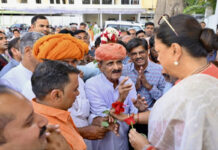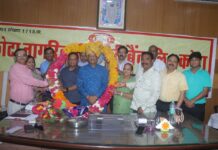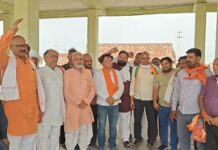
Restoring the valuables of old good times, academicians have asked to take measures to preserve the Sanskrit manuscripts. This discussion came into light in the recent event of Sanskrit Youth Festival by the Rajasthan Sanskrit Academy. The event was organised at Forest Training Institute in Jaipur.
The chief debate was on the matter that, rather than publicising it, plethora of manuscripts have been kept by families. These are lakhs in numbers which are out of the sight of common public. As revealed by Shastri Kosalandradas (professor at Sanskrit University), Rajasthan has rich pile of excavated Sanskrit text which has been preserved at historical sites.
To this, Kosalandradas said, “The once flourishing Buddhist monasteries or complexes at four places—Bhairat in Alwar, Kholvi in Jhalawar, Bandarez in Dausa and Ramgoan in Tonk treasures of knowledge. These complexes have inscriptions in Magadhi Prakrit shares a genealogy with Sanskrit”.
As per the previous discussions, the national mission for manuscript, New Delhi is accepting the manuscripts and made an estimation of 2-3 crores receipts, but they got only 45 lakh for the further process of digitization. To this, Kosalanedas said, “Many elite families in the state possessed these manuscripts and they have kept it as religious texts without understanding its importance in the diverse fields–politics, administration, medical, philosophy, agriculture etc. They are unknowingly committing a tragedy by keeping with themselves”. With understanding their need of the society and its betterment, they should contribute with these manuscripts.
In the summit, the director of Rajasthan Sanskrit Academy, Jyoti Dave addressed to Audrey Trushke, author of “Culture of Encounters”, in which she has mentioned the ways Mughals extracted their administrative and political policies taking reference from the ancient Sanskrit text.
Dave promptly mentioned, “These texts have the potential to come with more effective means of government, law, administration, harmony between nature and human. All is required is dedicate time for research”.









